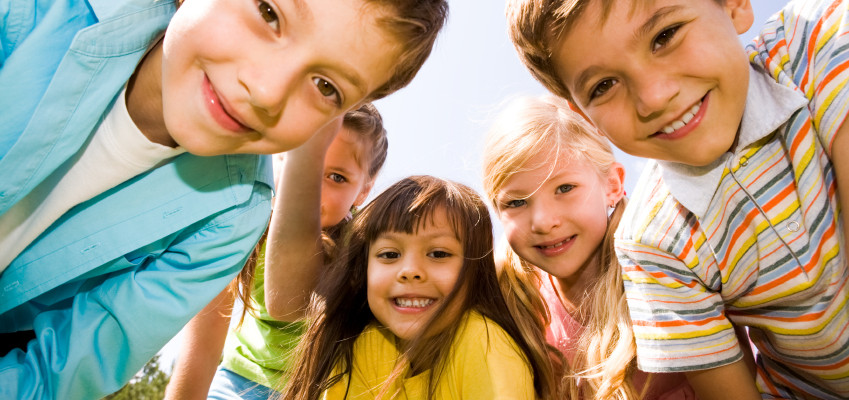
Ahhhh, summer. This time of year leaves many parents with mixed emotions. Excitement, anticipation, perhaps angst? Entertaining your baby, toddler, or child can be a challenge sometimes. But as parents we want to create the best learning environment to help them continue to thrive during this season. Check out these summer activities for kids that help promote and build language skills.
6 Things to Make this Summer Memorable
“The best camera you have, is the one with you.”
Snapshotting every chance you get will create great memories and also great opportunities for language development. You can create a “facebook,” on your iThing, and ask different family members to send selfies with different emotions for your child to identify. Take pictures of your day at the park, or baking cookies, and ask your pre-schooler to retell the story of the day. Narrative skills, or being able to tell a story, are a great predictor of literacy and academic success later on.
Unplug.

We know that children learn by experience, being engaged, and manipulating their environments. Learning through play has been proven to teach children new words faster, build vocabulary, cognition and problem solving skills. So grow your your child’s brain, get those synapses firing, and head outside to a park or playground. Pick flowers, use sidewalk chalk, play tag, cloud watch, and meet new friends.
Take a trip.
Your child learns from new experiences every day. Different environments (both indoors and outdoors!) are great for your kiddo’s brain. Take a walk or go for a hike outside, go to the zoo, walk around a museum, choose new parks and indoor play spaces. Go to reading time at the library or fun enrichment classes (music, swimming, language). Try taking a different mode of transportation if available, walking, bussing, or biking to do daily errands can provide your child with a new experience to get talking. Again, asking them to retell the story of the day will help develop those crucial narrative skills that will later help with literacy and academic success.
Sing a song.
Singing nursery rhymes and lullabies (or even Top 40 songs!) can have benefits on your child’s cognition. Although some of the research is still working on proven effects of music and cognition, there is evidence to show that children can further develop their language skills, literacy, and creativity by singing more. We like songs for enhancing language development because they are repetitive (one of our Big 5 methods for language learning!), and can provide a child with new and meaningful vocabulary.
Keep reading.
Children learn between 4,000 and 12,000 new words each year as a result of reading books. Head to the library or our Recommended Book List, and get your child some new reading and familiar reading material for this summer. Build a reading routine (after breakfast, before dinner, bedtime) or not, and get your child more engaged in the world outside of their own. Learn how to Take Book Reading to the Next Level with your child, and really enhance their literacy experience. Remember that keeping book reading dynamic and engaging will build your child’s attention and foster better language and cognitive development.
Question Everything.
Asking and answering questions is the basis of all conversation, and thus will help develop language skills, as early as infancy. A 10-month old might hold up on object and show it to you as a method of asking or requesting for information. Children begin asking what - questions sometimes before 2 years of age. As they get older, begin asking them more complex and abstract questions to promote language skills.
Milestones for Asking and Answering Questions:
Answering
- 1-2 years: Answers where questions by pointing (e.g. Where’s the ball? Where’s Daddy?), answers yes/no questions (e.g. Do you want...?)
- 2-3 years: Answers simple what, who, and where questions
- 3-4 years: Answers complex who, where, why, and how questions
- 4 years: Answers when questions
Asking
- 2 years: Asks, “What’s that?”
- 2-2.5 years: Asks questions with rising intonation
- 2.5 to 3 years: Asks where questions
- 3 years: Asks who questions
- 3 to 3.5 years: Asks “Is…?” and “Do…?” questions
- 3.5 to 4 years: Asks when, why, and how questions
